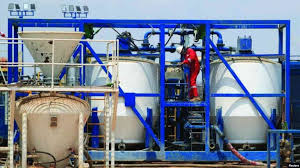
Zimbabwe has taken a historic step in its energy sector following the first-ever commercial discovery of natural gas within its borders. The government has announced plans to commence pilot production, marking the initial phase toward developing a domestic gas industry aimed at enhancing energy security and supporting economic growth.
The discovery, made in the Mutare region after extensive exploration activities, has sparked optimism among officials and sector analysts. Early assessments suggest significant reserve potential, and authorities have outlined a roadmap to establish a small-scale production facility to evaluate the gas field’s viability and operational capacity.
Minister of Energy stated that the pilot phase would involve constructing a modest processing plant with the goal of producing enough gas to supply local communities and industries. This targeted approach is designed to test technical systems, refine infrastructure needs, and inform future investment decisions.
The discovery represents a rare opportunity for Zimbabwe to diversify its energy mix, which currently relies heavily on coal, hydroelectricity, and imported fuel. Developing a domestic gas source could reduce the nation’s dependence on costly imports and help stabilize energy supply—particularly during periods of drought or power shortages.
Economists note that even a small-scale domestic gas supply could offer multiple benefits, including lower energy costs for consumers and industries, reduced price volatility, and potential job creation in exploration, drilling, and distribution. A successful pilot could also attract international investors keen to participate in Zimbabwe’s emerging gas sector.
Officials have emphasized that any production project will include rigorous environmental safeguards, transparent regulatory oversight, and stakeholder engagement to mitigate risks and ensure community benefits.
If the pilot proves successful, Zimbabwe plans to expand gas infrastructure—such as pipelines, compression stations, and storage facilities—to support larger-scale development. The ultimate goal is to gasify power plants and industrial zones, positioning natural gas as a pillar of the country’s energy strategy going forward.

